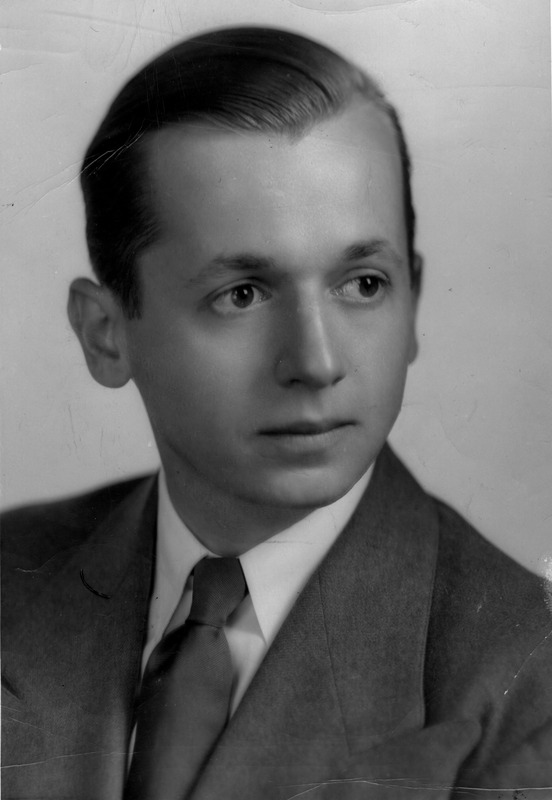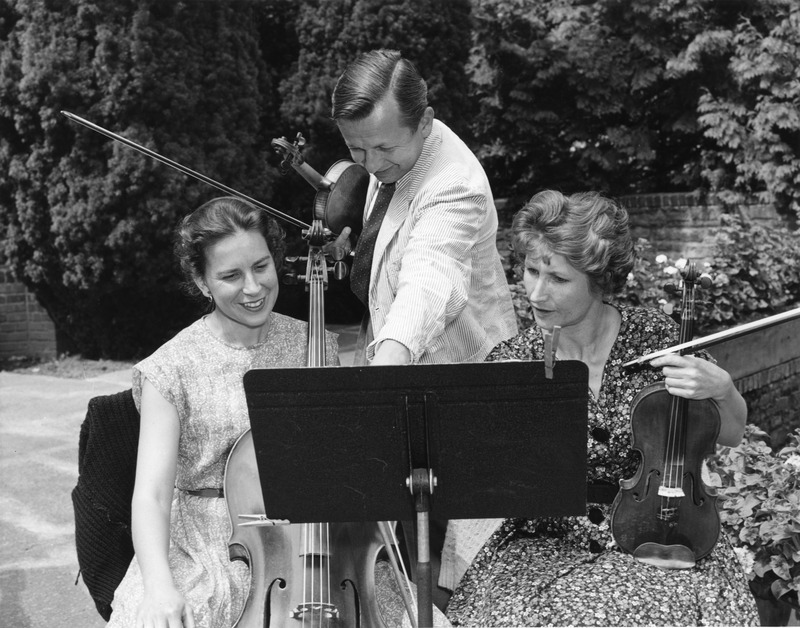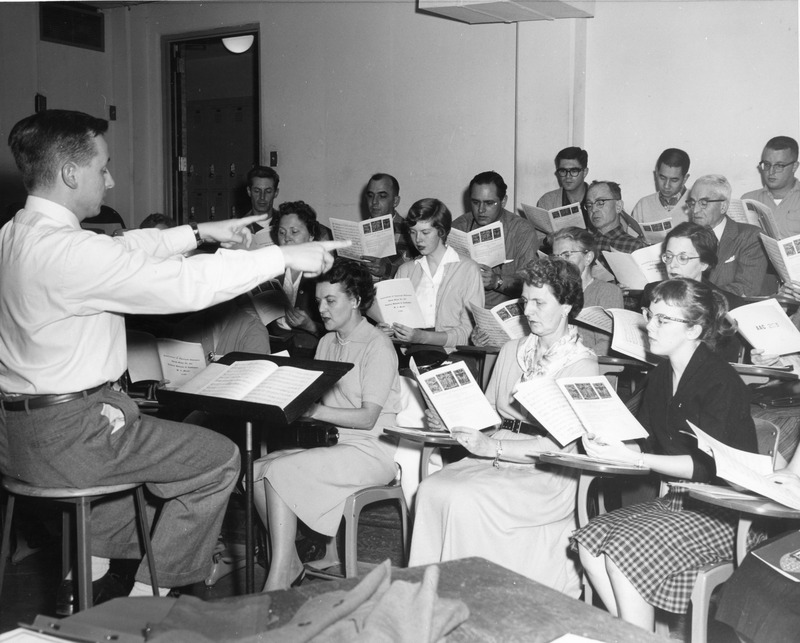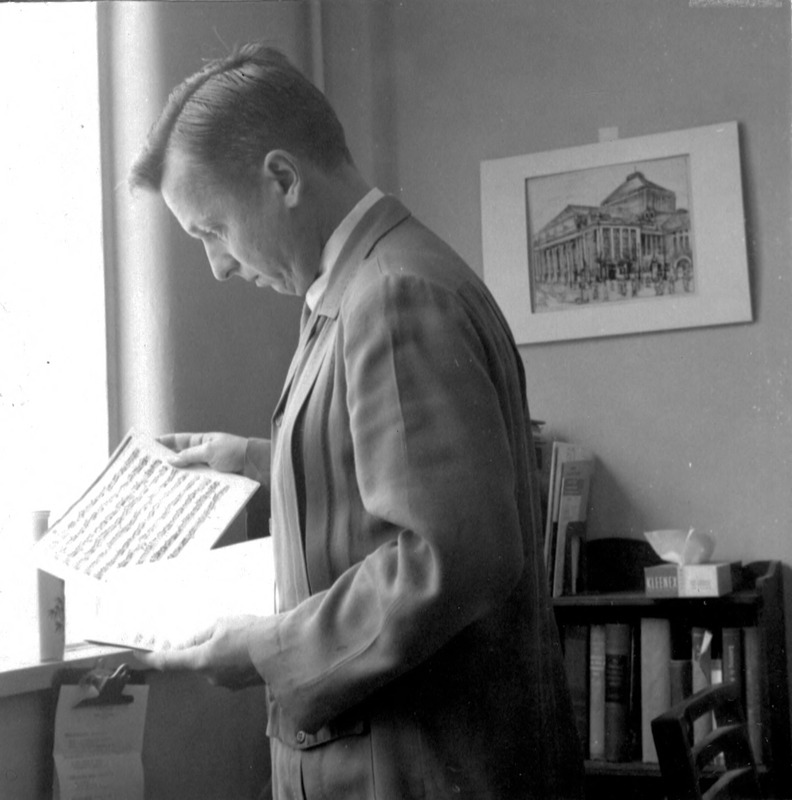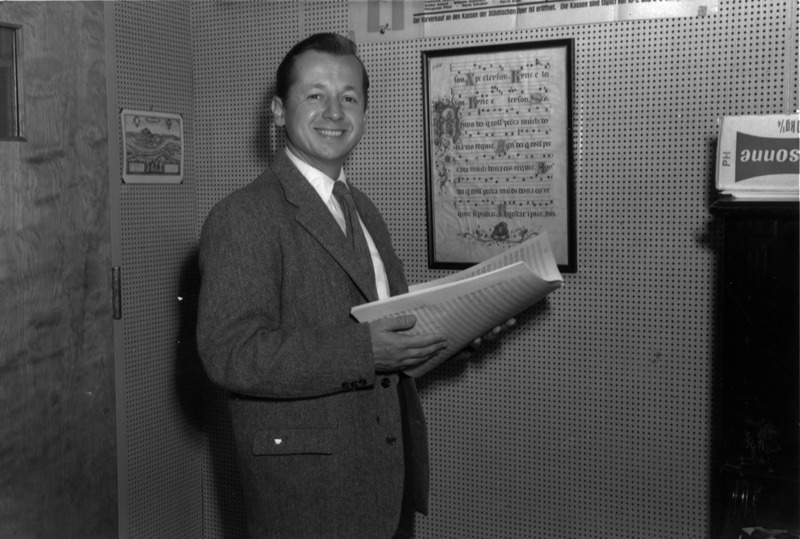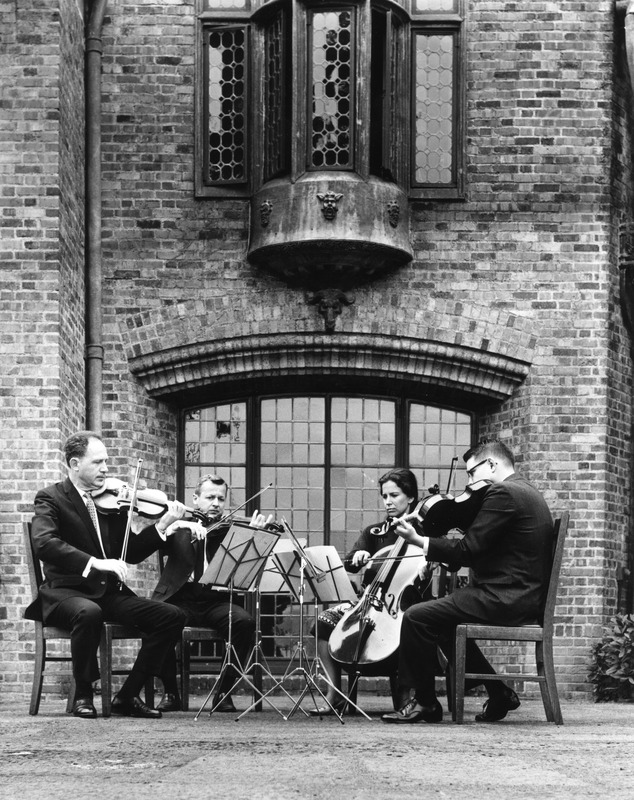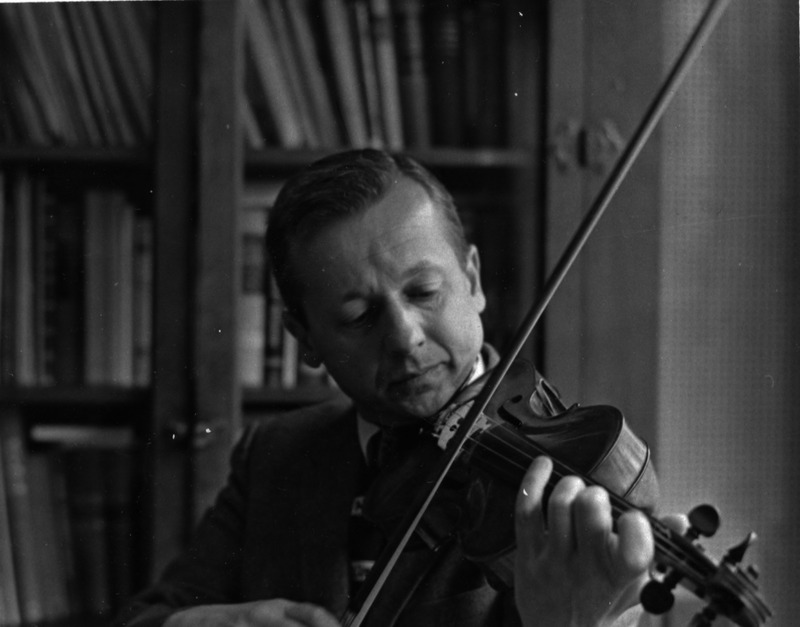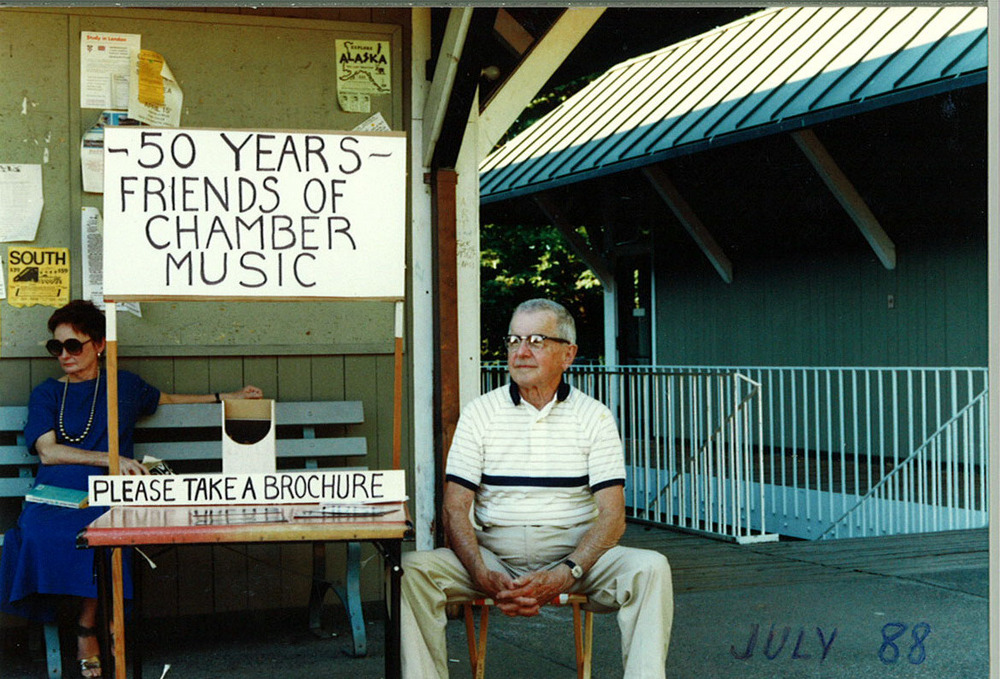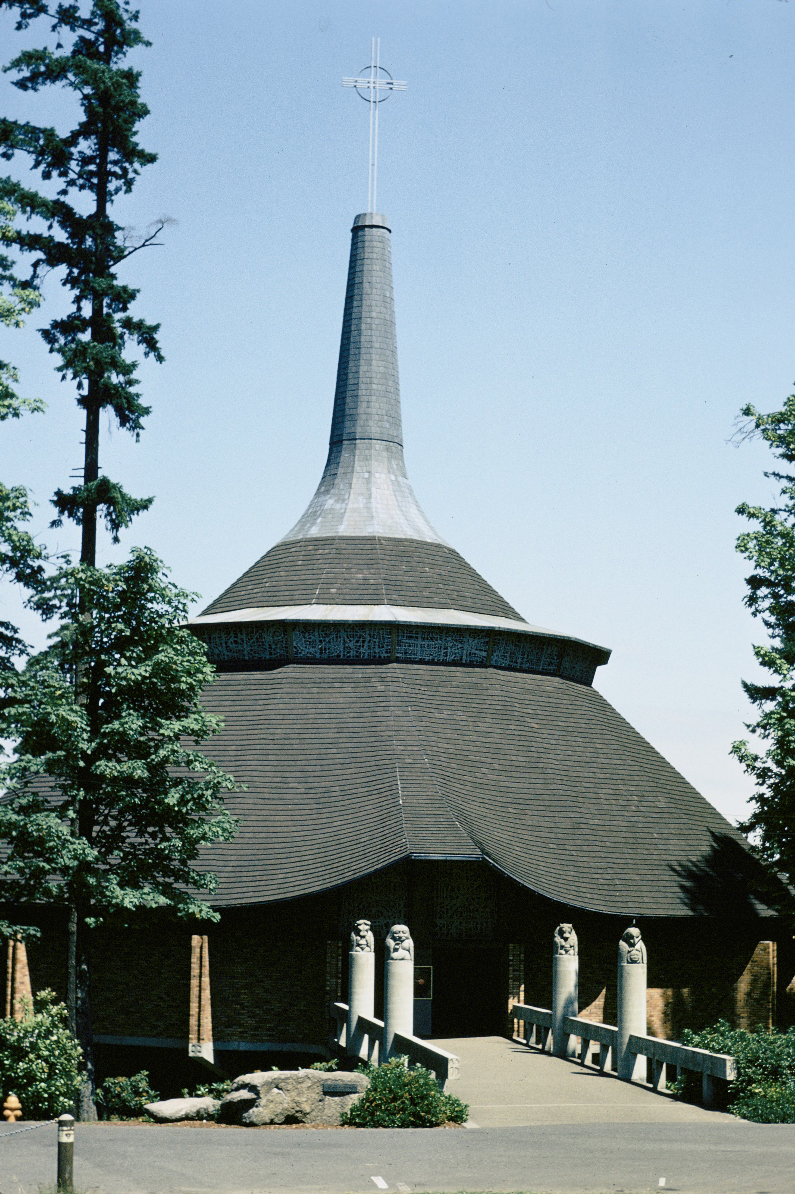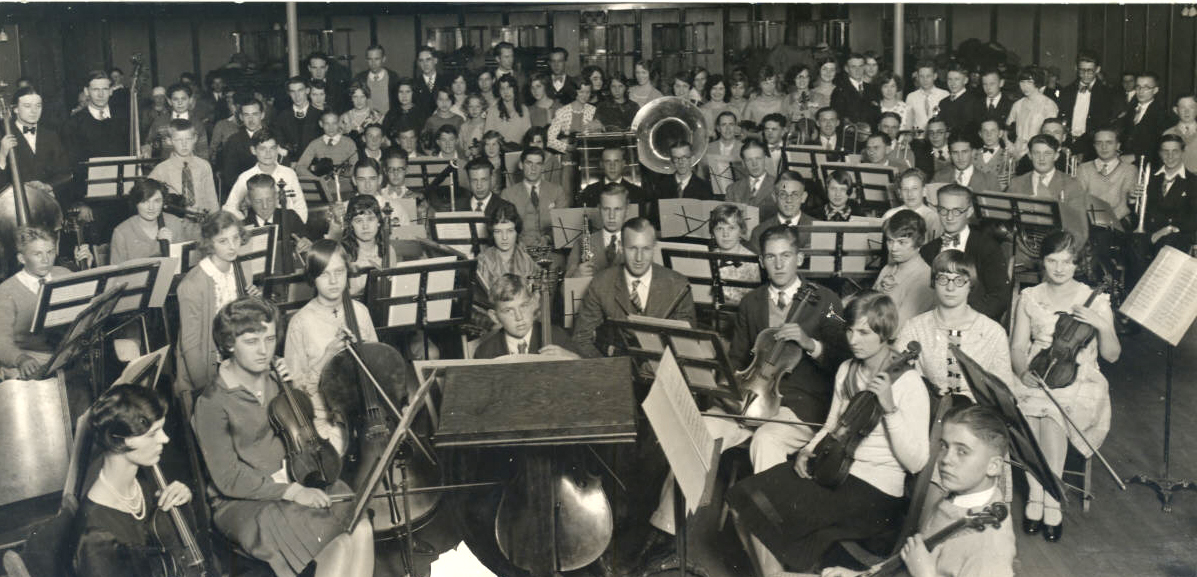Reinhard Pauly was a scholar, writer, and performer and a longtime professor of music at Lewis & Clark College. An international authority on music of the Classic Period (1750 to 1820), he was a talented musician who played violin and viola for the Portland Symphony Orchestra (now the Oregon Symphony) and the Portland Opera Orchestra and was an early member of the Portland Baroque Orchestra.
Reinhard Georg Pauly was born on August 9, 1920, in Breslau, Silesia. His father, Georg Pauly, was the opera dramaturge at the City Theater, director of the Berlin Opera, and director of the Stadttheater of Saarbruecken before going into exile in Buenos Aires, Argentina, in 1935 to escape the Nazi campaign against Jews. Pauly’s mother, Hermine Correns-Pauly, taught piano and was a soloist and a member of a piano quintet in Berlin. She was prohibited from working because she was married to a Jew, a ban that was lifted after she and Georg divorced in 1939.
As a teenager, Reinhard Pauly attended the Klindworth-Scharwenka Conservatory in Berlin, where he studied violin, music history, theory, and chamber music. On the eve of his seventeenth birthday, rather than be conscripted into the Hitler Youth corps, he fled Nazi Germany for the United States, where he lived with an uncle in New York City. He continued his musical studies at the Manhattan School of Music and graduated cum laude from Columbia University with a bachelor of arts in 1942. He married Dorothy Constance “Connie” Hare on December 24, 1942; they would have three children.
As a newly naturalized U.S. citizen in 1942, Pauly joined the Army and was sent to North Africa as a second lieutenant. By the end of the war, he was a captain and part the Military Intelligence Corps. He was an official translator of German documents of surrender.
After the war, Pauly returned to Columbia University, where he studied under musicologist Paul Henry Lang and served as concertmaster of the University Orchestra. He received a master’s degree in music history from Columbia in 1947, a master’s degree in violin from Yale University in 1948, and a Ph.D from Yale in 1956. In 1948, Pauly was appointed to the faculty of Lewis & Clark College in Portland. In 1955, while doing research at a monastery in Salzburg, Austria, he discovered the manuscript of a motet composed by Michael Haydn, which Pauly arranged into a choral series in 1959. The Lewis & Clark choir performed the motet with the Portland Chamber Orchestra.
Pauly was on the Fine Arts Advisory Committee for the Oregon Centennial Commission and served on the boards of Friends of Chamber Music, the Portland Opera Association, and the Portland Junior Symphony (now Portland Youth Philharmonic). He was a judge for the Metropolitan Opera regional auditions and a member of the national council of the Journal of the American Musicological Society.
The recipient of a Guggenheim Fellowship in 1960, Pauly did research in Austria and Germany and gave a series of lectures at the Mozarteum in Salzburg. He published articles in Musical Quarterly, Journal of the American Musicological Society, New Grove Dictionary of Music and Musicians, and Salzburger Nachrichten (in German). His book, Music in the Classic Period (1965), was revised and reprinted several times and was translated into Spanish and Japanese. He also wrote Music and Theatre: An Introduction to Opera (1970) and edited choral works by Johann Eberlin and Michael Haydn.
Pauly retired as a full professor from Lewis & Clark College in 1985. From 1987 through 2003, he was the general editor of Amadeus Press, a classical music imprint of Timber Press in Portland. He translated and edited The Amadeus Book of the Violin by Walter Kolneder (1998) and oversaw the publication of some forty books on classical and traditional music.
Reinhard Pauly died in Portland on September 26, 2019.
-
![]()
Reinhard G. Pauly, 1951.
Courtesy Special Collections and College Archives, Watzek Library, Lewis and Clark College -
![Lewis and Clark College outdoor concert.]()
Reinhard Pauly in rehearsal with Maria DeRungs (left), and Ann Haworth, c.1961.
Lewis and Clark College outdoor concert. Courtesy Special Collections and College Archives, Watzek Library, Lewis and Clark College -
![]()
Reinhard Pauly conducting the Lewis and Clark College Community Chorus, 1959.
Courtesy Special Collections and College Archives, Watzek Library, Lewis and Clark College -
![Professor of Music, violin (1948-1985), Lewis and Clark College.]()
-
![Lewis & Clark College Faculty and Staff.]()
-
![Paul Bellam, Reinhard Pauly, Maria DeRungs, Walter Cogswell performing on Frank Manor House porch.]()
Reinhard Pauly plays in Lewis and Clark College faculty string quartet, 1966.
Paul Bellam, Reinhard Pauly, Maria DeRungs, Walter Cogswell performing on Frank Manor House porch. Courtesy Special Collections and College Archives, Watzek Library, Lewis and Clark College -
![]()
Reinhard G. Pauly, 1970.
Courtesy Special Collections and College Archives, Watzek Library, Lewis and Clark College
Related Entries
-
![Friends of Chamber Music]()
Friends of Chamber Music
Friends of Chamber Music is the oldest continuously operating chamber m…
-
![Lewis & Clark College]()
Lewis & Clark College
Lewis & Clark College, a private and academically selective liberal art…
-
![Portland Youth Philharmonic]()
Portland Youth Philharmonic
Established in 1924, the Portland Youth Philharmonic is the oldest yout…
Related Historical Records
Map This on the Oregon History WayFinder
The Oregon History Wayfinder is an interactive map that identifies significant places, people, and events in Oregon history.
Further Reading
"Reinhard G. Pauly." Guggenheim Memorial Foundation.
Garret, Lee. "Reinhard Pauly." Lewis & Clark Magazine (Fall 2019).
"At Lewis & Clark." Salem Statesman Journal, April 25, 1958, p. 11.

